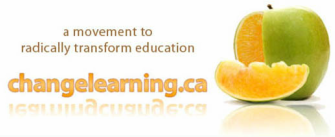Many of us have a feeling that that something is wrong in education and that reform based on higher standards, improving student achievement tests and a back to basics approach will not fix it. But what exactly is the problem – and what kind of change is really needed to encourage innovative thinking, increase the motivation to learn or to help all children reach their full potential as engaged, happy and productive adults?
The good news is that the information we need to do a better job of educating our kids is already out there. Research from a wide variety of fields is giving us a much clearer picture of how human beings learn, develop and thrive and about learning opportunities that work and those that don’t.
Dive in. Take a Bite.
Find out why our schools are set up the way they are. See what the research says about why your teenager has disengaged from school or how to nurture creative thinking. Explore what boosts kids motivation to learn and what kind of learning experiences promote deep understanding. Start small or look at the big picture. Go to the resource library. Make connections. The more we share information and discuss the issues, the more informed our actions can be – as educators, parents, students, politicians and voters. If we know more about how humans learn and see the possibilities and potential of programs in action, we can lobby for the kind of changes that actually help our kids and strengthen our society.
Read more

 RSS Feed
RSS Feed
